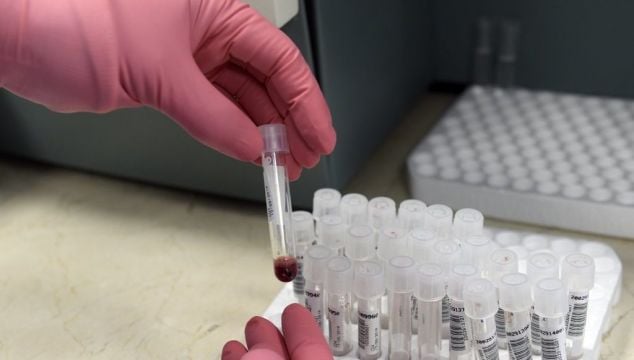The numbers of those living with HIV in Ireland has increased to 100 cases per month, a new study shows.
This is due in large part to the estimated 509 Ukrainian refugees arriving in Ireland since Russia declared war on the country 19 months ago who are living with HIV resulting in the rise in national monthly diagnosed figures from the average 40 to 100 cases.
As of June 6th, of the estimated Ukrainian refugees living with HIV, 222 are men and 287 are female. The greatest number of cases are among those aged 30-44.
A total of 382 were aware they had HIV, 316 were on ART medication, and 295 had suppressed viral loads, (medication to keep HIV to a very low level which keeps the immune system working and prevents illness) prior to the war.
Antiretroviral therapy (ART) is the combination of several antiretroviral medicines used to slow the rate at which HIV makes copies of itself (multiplies) in the body.
Up to 84,613 individuals had arrived in Ireland from Ukraine according to the Central Statistics Office (CSO) as of June 6th.
The study carried out by the Department of Public Health in St Finbarr’s Hospital in Cork highlights the needs for appropriate healthcare services planning.
The co-authors also point out it is likely that there are additional individuals with HIV to be identified and linked into healthcare services among newly-arrived Ukrainian refugees into the country. Ukraine has the second-highest incidence of HIV in Europe.
According to the Global Burden of Disease (GBD) study, there were an estimated 264,448 people living with HIV in Ukraine in 2019. This equates to 0.63 per cent of the total Ukrainian population.
The results are based on CSO figures, the GBD study and UNAIDS data.
The study co-authors explained that between 2015 and 2021, the rate of new HIV notifications in Ireland had been relatively stable at approximately 40 cases per month.
“But (numbers) have increased considerably to approximately 100 cases per month since May 2022,” the co-authors said.
“At present, there is no systematic HIV testing for refugees in Ireland and this has created some uncertainty regarding the burden of HIV in this group.
"The aim of this study is to estimate the number of Ukrainian refugees living with HIV in the Republic of Ireland in order to inform healthcare service providers,” they continued.
The study co-authors also warn that the displacement of refugees due to the ongoing war in Ukraine poses a significant risk of delayed HIV diagnosis, medical complications, onward transmission, and resistance to medication due to treatment interruptions.
A holistic approach to addressing the health needs of migrants, which included BBV (Blood borne viruses are infections that spread through blood), broader health screening and access to vaccinations, should be implemented the co-authors believe.
“A systematic, accessible, free, voluntary HIV and other BBV testing programme should be offered to all Ukrainian refugees.
"All migrants should be asked if they, or their children or dependents, have a known diagnosis of BBVs and offered testing accordingly. Those with a previous BBV diagnosis or positive test result should be able to seamlessly access specialist BBV services.
"There also needs to be appropriate cultural, language and psycho-social supports in place including interpreters, counsellors, etc,” the study concludes.
The study findings are backed up by figures from the Health Protection Surveillance Centre (HPSC) show that there was a decrease in HIV diagnoses in Ireland in 2020 and 2021 due to the impact of the Covid-19 pandemic. The HPSC is the body responsible for tracking rates of sexually transmitted infections (STIs).
The HPSC data for HIV shows cases rose from 400 to 874 by the end of week 51 last year, a rise of 118 per cent.







